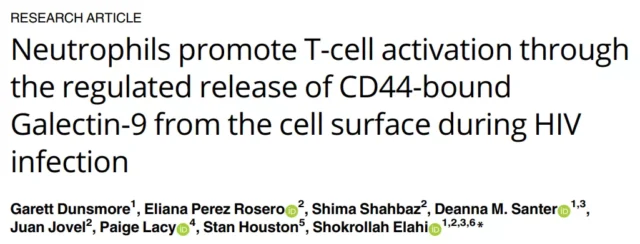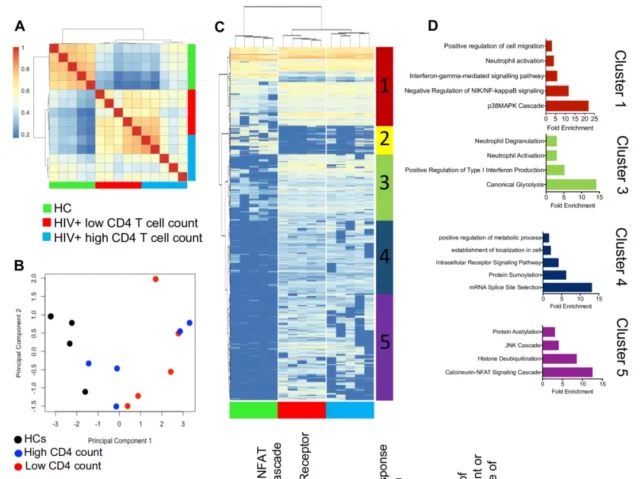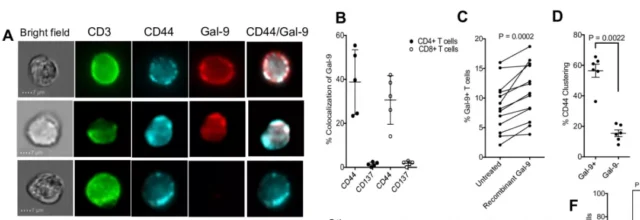Why does abnormally activated neutrophils cause rapid aging of AIDS patients?
- Normal Liver Cells Found to Promote Cancer Metastasis to the Liver
- Nearly 80% Complete Remission: Breakthrough in ADC Anti-Tumor Treatment
- Vaccination Against Common Diseases May Prevent Dementia!
- New Alzheimer’s Disease (AD) Diagnosis and Staging Criteria
- Breakthrough in Alzheimer’s Disease: New Nasal Spray Halts Cognitive Decline by Targeting Toxic Protein
- Can the Tap Water at the Paris Olympics be Drunk Directly?
Why does abnormally activated neutrophils cause rapid aging of AIDS patients?
- Should China be held legally responsible for the US’s $18 trillion COVID losses?
- CT Radiation Exposure Linked to Blood Cancer in Children and Adolescents
- FDA has mandated a top-level black box warning for all marketed CAR-T therapies
- Can people with high blood pressure eat peanuts?
- What is the difference between dopamine and dobutamine?
- How long can the patient live after heart stent surgery?
Why does abnormally activated neutrophils cause rapid aging of AIDS patients?
Why do AIDS patients age rapidly? Abnormally activated neutrophils are the key.
Neutrophils are the foundation of the human immune system and the most abundant type of white blood cells. However, unlike other types of white blood cells, neutrophils have a very short life span.
They die after completing their work and must regenerate in the bone marrow.
When neutrophils feel the danger of infection, they feel stressed and release the protein galectin-9 (Gal-9) . Gal-9 can interact with different immune cells.
Among these immune cells, T cells are the most concerned. However, the interaction between neutrophils and T cells has always been the subject of controversy.
Previous studies have shown that neutrophils may inhibit or activate T cells. Despite these studies, the interaction between neutrophils and T cells has not been well studied.
The role of neutrophils in HIV infection with depleted T cells remains unclear.
Recently, the research team of the University of Alberta published a research paper titled: Neutrophils promote T-cell activation through the regulated release of CD44-bound Galectin-9 from the cell surface during HIV infection in the journal PLOS Biology .
The study found that with the progress of AIDS, neutrophils become more active and more potent, which in turn activates the body’s T cells, which may cause some problems related to HIV infection, such as inflammation and rapid aging .

The study conducted a comprehensive sequencing analysis of the blood cells of 116 HIV-infected people and 60 healthy volunteers, and found the pro-activation, pro-inflammatory and pro-aging characteristics of neutrophils, and revealed the galectin on the surface of neutrophils. 9 (Gal-9) New mechanism for shedding.
This can explain that the elevated plasma Gal-9 level in HIV-infected patients is a potential mechanism of chronic immune activation in HIV infection, and provides a new role for neutrophils to release Gal-9. The results of this study will lead to new research on the role of neutrophils in T cell activation in other acute and chronic diseases, as well as improved strategies for regulating Gal-9 shedding.
In order to determine the transcription profile of neutrophils in HIV patients, the research team collected blood neutrophils from HIV-infected individuals and healthy volunteers for RNA sequencing analysis. They found that not all HIV-infected people have similar types of neutrophils. As AIDS progresses, neutrophils become more active and more effective, which may cause some problems related to HIV infection, such as inflammation and rapid aging.
Further research revealed the differential effect of low CD4 T cell count and high CD4 T cell count on the expression of T cell activation markers by neutrophils in HIV patients. Although neutrophils from HIV-infected individuals with high CD4 T cell counts and HCs did not affect T cell activation, neutrophils from HIV-infected individuals with low CD4 T cell counts significantly enhanced T cell activation in vitro.

Compared with the high CD4 T cell count, the Gal-9 expression on the neutrophils of HIV-infected persons with low CD4 T cell count decreased more significantly, and the Gal-9 level of the HIV group was significantly lower than that of the healthy control.
The co-culture of neutrophils from HIV-infected individuals and their mononuclear cells (PBMC) will cause Gal-9 and CD44 to co-localize on the surface of T cells and activate T cells, indicating that the activated state of neutrophils in HIV-infected individuals leads to Gal -9 falls off, and Gal-9 is subsequently bound by CD44 to enhance T cell activation, which may play a role in the pathogenesis of HIV.

After observing the shedding of Gal-9 in the neutrophils of HIV-infected patients, the research team decided to explore how neutrophils shedding Gal-9 from the mechanism.
They observed that Gal-9 co-localized with CD44 on the surface of neutrophils to an even greater extent than T cells.
Therefore, they used imaging cytometry to analyze the structure of CD44 on neutrophils and found that when CD44 caps appeared, Gal-9 was reduced from the surface of neutrophils.
In addition, lipopolysaccharide stimulation of neutrophils can induce CD44 capping and reduce the surface expression of Gal-9.
Depalmitylase will depalmitylate CD44, which is associated with lipid rafts. They found that the process of depalmitylation helped CD44 capping and Gal-9 shedding on neutrophils.
Inhibition of depalmitylation partially reversed the down-regulated expression of Gal-9 by lipopolysaccharide and its shedding from neutrophils.
These results indicate that the depalmitylation of CD44 induces the shedding of Gal-9 in neutrophils.

In summary, the findings of this work have identified a new Gal-9 shedding mechanism that can promote T cell activation. The interaction between T cells and neutrophils has only been studied superficially.
However, the results of this study indicate that there is a complex interaction between neutrophils and T cells through Gal-9 binding.
In view of the fact that neutrophils can affect T cell function by regulating the shedding of Gal-9, further research is necessary to understand the role of neutrophils in T cell activation in other acute/chronic diseases.
The use of neutrophils to release Gal-9 may be a new therapeutic target to prevent further HIV replication and enhance CD8+ T cell response.
Original link:
https://doi.org/10.1371/journal.pbio.3001387
Why does abnormally activated neutrophils cause rapid aging of AIDS patients?
(source:internet, reference only)
Disclaimer of medicaltrend.org
Important Note: The information provided is for informational purposes only and should not be considered as medical advice.



